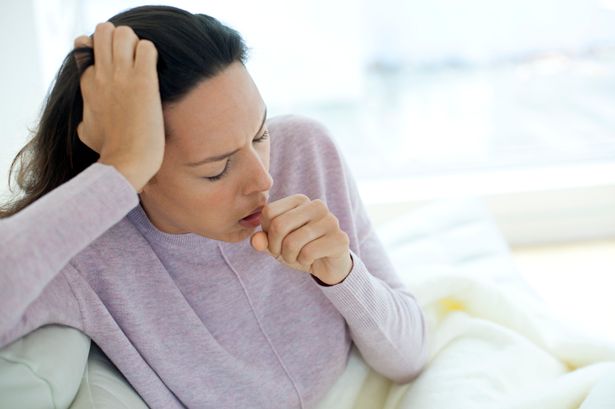People are being advised to stay at home if they don’t feel well (Image: GETTY)Get daily celeb exclusives and behind the scenes house tours direct to your inboxMore Newsletters SubscribePlease enter a valid emailSomething went wrong, please try again later.More NewslettersWe use your sign-up to provide content in ways you’ve consented to and improve our understanding of you. This may include adverts from us and third parties based on our knowledge of you. More infoThank you for subscribing!We have more newslettersShow me See OurPrivacy Notice See OurPrivacy Notice×Group 28 Get daily celeb exclusives and behind the scenes house tours direct to your inboxInvalid emailSomething went wrong, please try again later.Sign UpNo thanks, closeWe use your sign-up to provide content in ways you’ve consented to and improve our understanding of you. This may include adverts from us and third parties based on our knowledge of you. More info×Group 28Thank you for subscribing!We have more newslettersShow MeNo thanks, closeSee our
Privacy NoticeBrits battling the common cold are being told to ‘stay home’ amid a surge in numerous severe viruses, including the 2024 strain of Covid, XEC, which has seen a spike in hospital admissions recently. The typical winter coughs and bugs are being joined by rising cases of flu and RSV. With an uptick in virus cases expected during the colder months, experts have stressed the importance of staying vigilant to avoid a range of illnesses such as colds, norovirus, chicken pox, hand foot and mouth disease, and scarlet fever. Kids are especially at risk for spreading germs as they return to school after the holidays.
People are being encouraged to stay vigilant when it comes to avoiding winter illnesses
(Image: GETTY)
The Express highlights how these ‘back to school bugs’ can quickly move through classrooms. UKHSA’s data shows that XEC variant is responsible for around one-tenth of current Covid infections. In light of this, Dr Jamie Lopez Bernal, a Consultant Epidemiologist at UKHSA, consolidated these concerns. “COVID-19 is continuing to circulate, with a slight increase in hospitalisations over the past two weeks. As winter approaches, we expect flu and RSV to increasingly circulate too, so if you’re eligible to get vaccinated against the three main winter threats – COVID-19, flu and RSV – now is the time to take them up and get winter strong,” he said. He added: “We understand people may be concerned about new variants. Our surveillance shows that where covid cases are sequenced, around 1 in 10 are the ‘XEC’ lineage. Current information doesn’t suggest we should be more concerned about this variant but we are monitoring this closely. The most important thing to do is to get your vaccination as soon as possible if you’re eligible,” reports Yorkshire Live. Sign up to OK!’s daily newsletter to get updates sent to your inbox for free
COVID-19, flu and RSV could all pose threats this winter
(Image: GETTY)
Meanwhile Boots’ Superintendent pharmacist, Claire Nevinson, has shared crucial tips for parents to keep their little ones healthy during school time. “With a cold, the best way to recover is to rest at home, keep warm and drink plenty of water. If you think your child might be getting ill, and doesn’t feel well enough to do their normal activities, you should try to keep them at home to rest up and recover, avoiding contact with other people,” she explained. And highlighting the necessity of continued good hygiene learned in the pandemic, she continued: “I always recommend encouraging your children to practice good personal hygiene, including regular hand washing with soap and warm water. This helps to remove dirt, viruses and bacteria from hands and helps prevent a virus being transferred to surfaces, other people and objects, which can spread illnesses such as a cold, flu or norovirus infection.”
If you have a cold, it’s best to rest up at home
(Image: (Image: Getty))
Discussing vaccinations, Claire also highlighted the importance of preventative measures. She said: “There are vaccinations available to help protect against infectious diseases and viruses. This is the best way to help yourself, your child and others around you from catching and spreading disease, so make sure your child is up to date with their routine childhood vaccinations. The NHS also recommends everyone, including children, should consider a flu vaccination every year.” She also mentioned the convenience and effectiveness of the children’s vaccine. “The children’s flu vaccine is usually given as a quick and painless nasal spray in each nostril and is the best way to protect against flu which often peaks in winter,” she explained.Story SavedYou can find this story in My Bookmarks.Or by navigating to the user icon in the top right.Follow OK! MagazineFacebookTwitterCommentMore OnHealthIn the News












